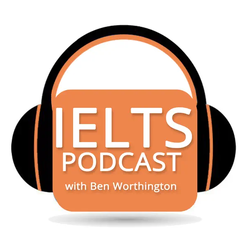In this tutorial, we discuss student debt IELTS Topic ideas, grammar, vocabulary and sample answers.
Table of Contents
Introduction
Grammar Point Covered
Pros and Cons Regarding Student Debt
Topic Specific Vocabulary Collocations and Phrases
Model Sentences Using the Student Debt Phrases and Conditionals
Model Essay About Student Debt
Speaking Part 3 Questions and Model Answers
Further Reading
Joke
Introduction
Student debt is a pressing issue that affects millions of individuals and society as a whole. This article will explore the topic in depth, providing vocabulary, grammar points, and sample answers for IELTS preparation.
Grammar Point Covered
The grammar point covered in this article is conditionals. Conditionals are sentences expressing hypothetical situations and their consequences. They are usually constructed using if to identify the conditions that must be met. There are four types of conditionals: zero, first, second, and third.
Zero Conditional: If students accumulate large amounts of debt, they often struggle to repay it after graduation.
First Conditional: If students don’t manage their finances wisely, they may find themselves burdened with student debt for a long time.
Second Conditional: If students had received more financial support, they would have been able to graduate debt-free.
Third Conditional: If students had chosen a more affordable college, they wouldn’t have ended up with such significant student debt after graduation.
Note: The third conditional is used to talk about hypothetical situations that are contrary to reality in the past.
Pros and Cons Regarding Student Debt
Pros:
Enables access to higher education for those who might not otherwise afford it.
Can lead to higher earning potential in the long run.
May encourage financial responsibility and budgeting skills in students.
Allows for the pursuit of careers that require advanced degrees.
Government student loans often have lower interest rates and more flexible repayment options than private loans.
Can provide an opportunity to build credit history.
Some professions offer student loan forgiveness programs.
Investment in education contributes to a more educated workforce and society.
Encourages economic mobility and social progress.
Student loans can cover expenses beyond tuition, like housing and books.
Cons:
Can lead to long-term financial burden and stress.
May delay major life milestones like buying a home or starting a family.
High default rates can have negative impacts on the economy.
Can limit career choices, as graduates may feel pressured to take higher-paying jobs to repay loans.
Interest rates can result in borrowers paying significantly more than the original loan amount.
Not all degrees lead to high-paying jobs, making loan repayment difficult.
Student debt can contribute to wealth inequality.
Loan repayments can take a significant portion of monthly income, limiting spending in other areas.
Bankruptcy laws make it difficult to discharge student debt.
Can create a cycle of debt, especially for those pursuing multiple degrees.
Topic Specific Vocabulary Collocations and Phrases
Here are some topic-specific collocations related to student debt:
Accumulate debt
Repay a loan
Financial burden
Tuition fees
Loan forgiveness
Interest rate
Default on a loan
Higher education
Economic mobility
Financial aid
Model Sentences Using the Student Debt Phrases and Conditionals
Here are some sentences that use the above collocations and the grammar point “conditionals”:
If you accumulate debt during your studies, it can become a financial burden after graduation.
Should the government increase financial aid, fewer students might need to repay a loan.
If the interest rate is too high, students may default on a loan.
Without loan forgiveness programs, many graduates would struggle with their student debt.
If tuition fees continue to rise, access to higher education could become more limited.
Model Essay About Student Debt
Question: What are the impacts of student debt on individuals and society, and how can these impacts be mitigated?
Introduction: Student debt is a significant concern for many individuals and has far-reaching impacts on society. This essay will discuss the effects of student debt and propose potential solutions to alleviate these impacts.
Body Paragraph 1: The burden of student debt can have profound effects on individuals and society. For individuals, the need to repay a loan can lead to financial stress and delay life milestones such as home ownership. On a societal level, high levels of student debt can exacerbate wealth inequality and limit economic mobility. Moreover, if many individuals default on a loan, it can have detrimental effects on the economy.
Body Paragraph 2: There are several ways to mitigate the impacts of student debt. Firstly, increasing financial aid and lowering tuition fees could reduce the need for students to accumulate debt. Secondly, implementing more loan forgiveness programs could alleviate the financial burden on graduates. Finally, if governments were to invest more in higher education, it could lead to a more educated workforce and contribute to economic growth.
Conclusion: In conclusion, while student debt can have serious impacts on individuals and society, there are potential solutions to these issues. By increasing financial aid, lowering tuition fees, and implementing loan forgiveness programs, the burden of student debt could be significantly reduced.
Speaking Part 3 Questions and Model Answers
Question 1: Why do you think student debt has become such a significant issue in recent years?
Answer: I believe student debt has become a significant issue due to the rising cost of tuition fees and the increasing necessity of a degree for many jobs. This has led to more students needing to accumulate debt to afford their education. If tuition fees were lower, or if there were more opportunities for students to earn a living wage without a degree, the issue of student debt might not be as prevalent.
Question 2: Should the government do more to help students with their debt?
Answer: Absolutely, I think the government should play a more active role in helping students manage their debt. This could include increasing financial aid, implementing more loan forgiveness programs, and regulating interest rates on student loans. If these measures were taken, it could significantly reduce the financial burden on students.
Question 3: How can individuals manage their student debt effectively?
Answer: There are several strategies individuals can use to manage their student debt. Firstly, it’s important to have a clear understanding of the terms of the loan, including the interest rate and repayment schedule. Secondly, budgeting and financial planning can help ensure that loan repayments are manageable. Finally, individuals could consider additional sources of income, such as part-time work or freelance projects, to help repay the loan more quickly.
Question 4: How has the perception of student debt changed over time?
Answer: In the past, student debt was often seen as a necessary investment in one’s future, with the expectation that a degree would lead to a high-paying job that would easily cover the cost of the loan. However, in recent years, as tuition fees have risen and the job market has become more competitive, many people have started to question this assumption. Nowadays, there’s a growing recognition of the long-term financial burden that student debt can impose, and a greater emphasis on exploring alternatives to traditional university education.
Question 5: Is student debt a common issue in your country?
Answer: Yes, student debt is a significant issue in my country. Many students have to accumulate debt to afford the high tuition fees for university. This has led to a situation where many young people start their careers with a large amount of debt, which can be a real financial burden. It’s a bit like being caught between a rock and a hard place* – you need a degree to get a good job, but getting a degree often means taking on a lot of debt.
*Caught between a rock and a hard place: This idiomatic expression means to be in a difficult situation where there are two equally tough or unacceptable options.
Further Reading
Here are some resources for further reading on the topic of student debt:
BBC: Student debt rising worldwide
Wikipedia: Student debt
UK Government: Student finance
Brookings Institution: The looming student loan default crisis is worse than we thought
National Bureau of Economic Research: The Economic Consequences of Borrowing to Pay for College
Joke
Why don’t students mind when their boat sinks?
Because they’re used to being in deep debt!
Join many other students who have achieved IELTS success with our online IELTS course or get instant feedback with our online essay checker.
You can download or listen to the full tutorial here:
| Direct Download Here | Stitcher | Apple Podcasts | Spotify
The post Student Debt: IELTS Topic ideas, Grammar, Vocabulary and Sample Answers appeared first on IELTS Podcast.

